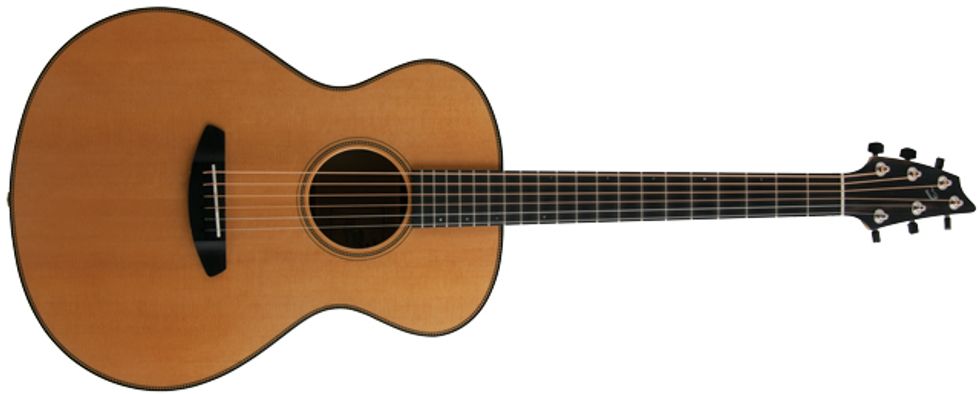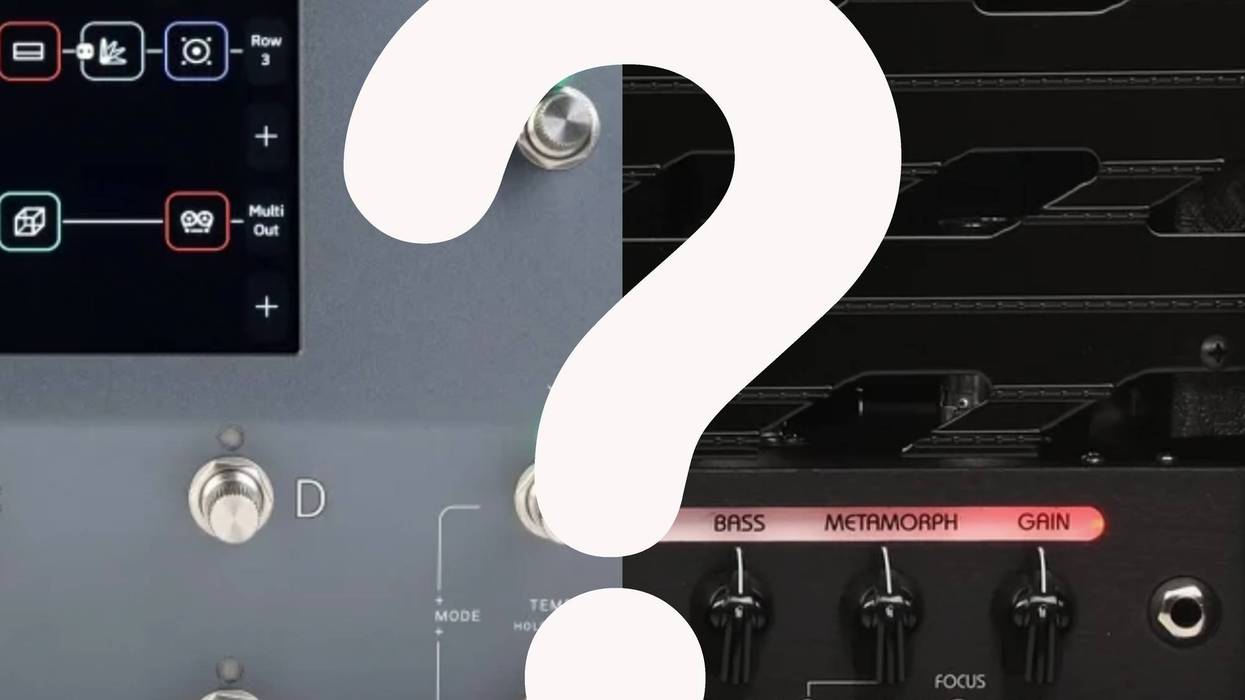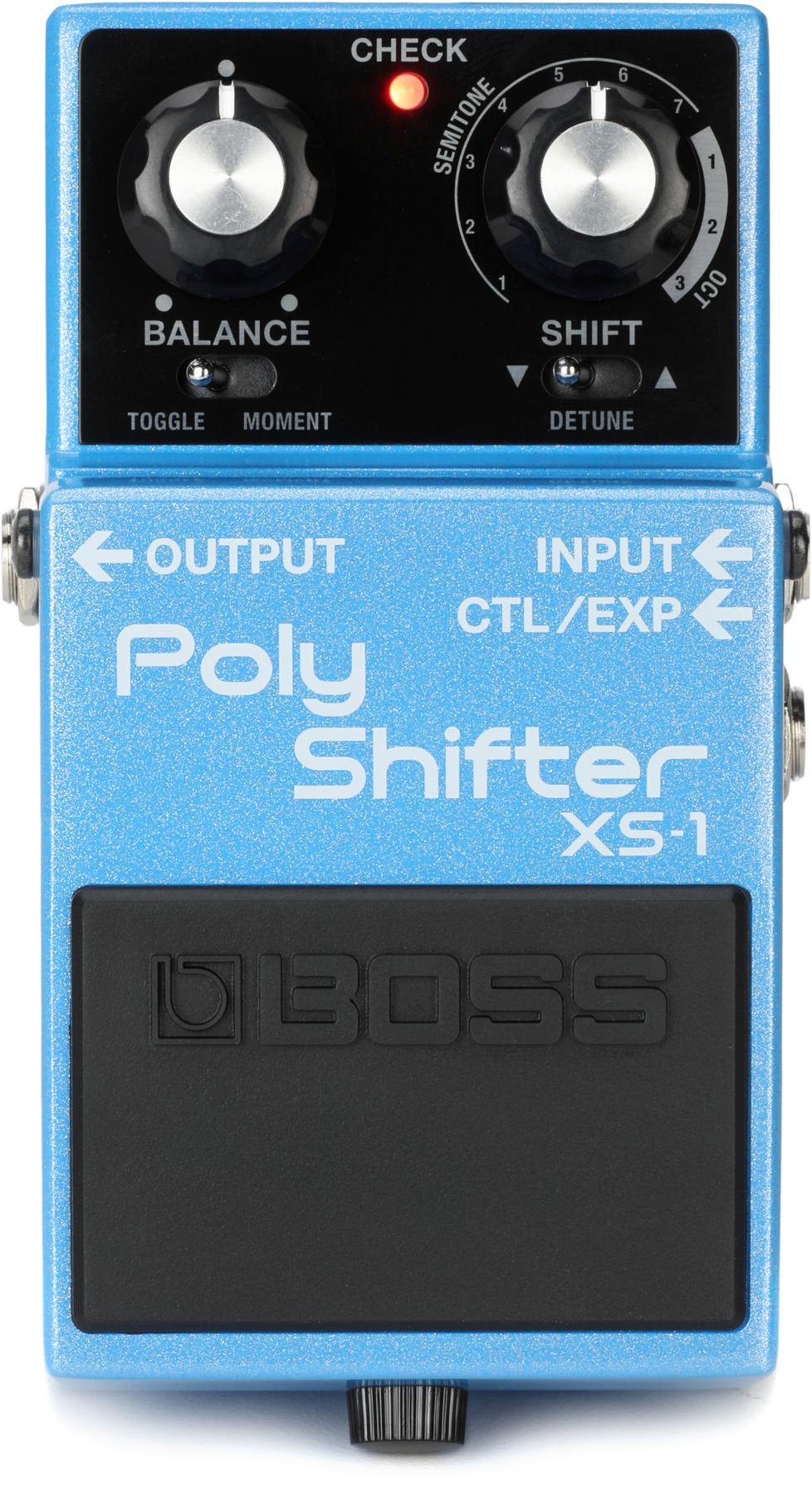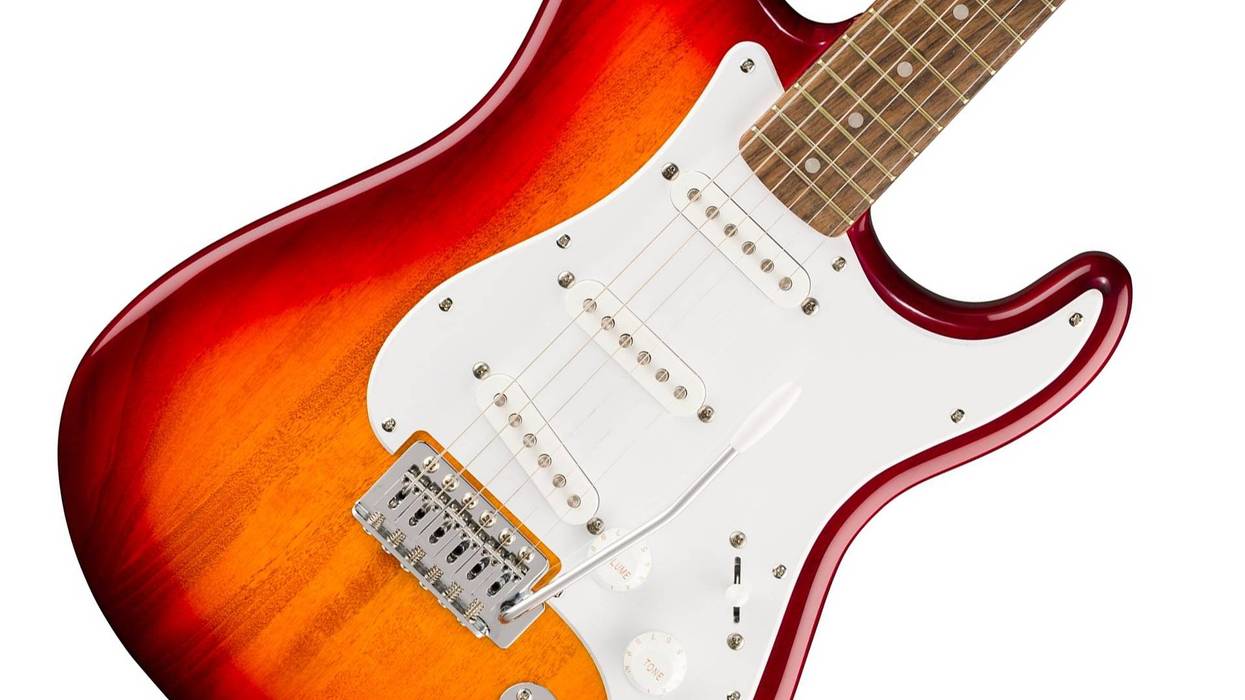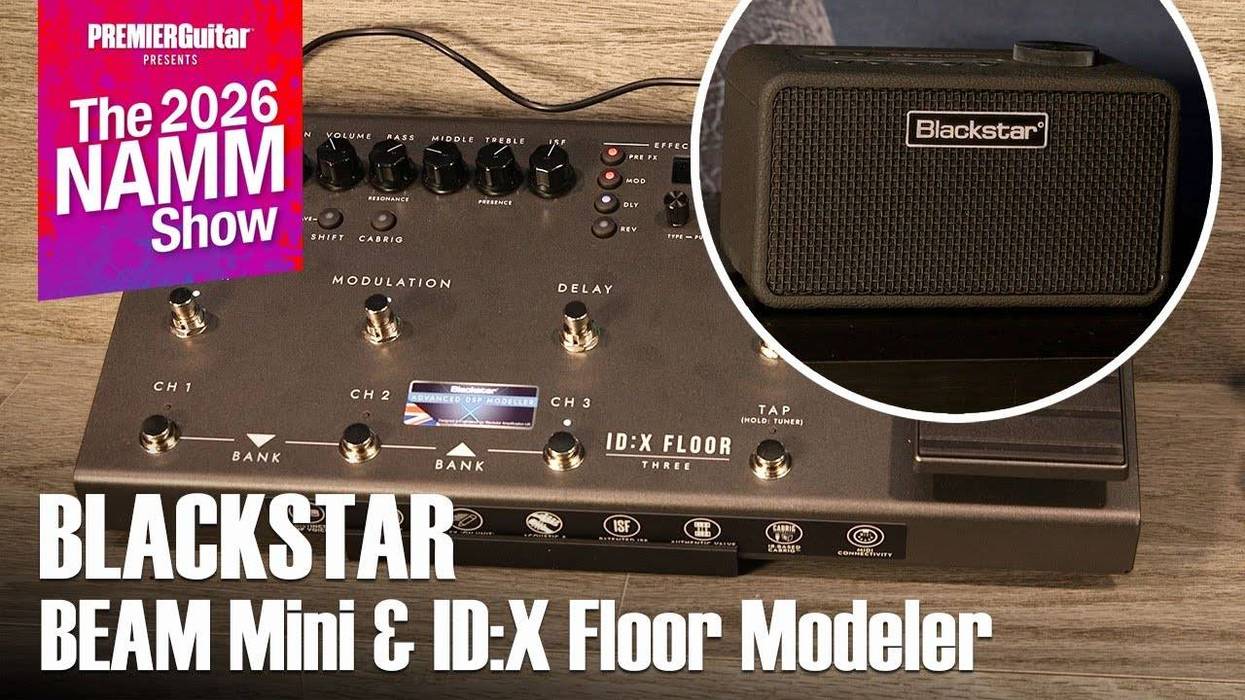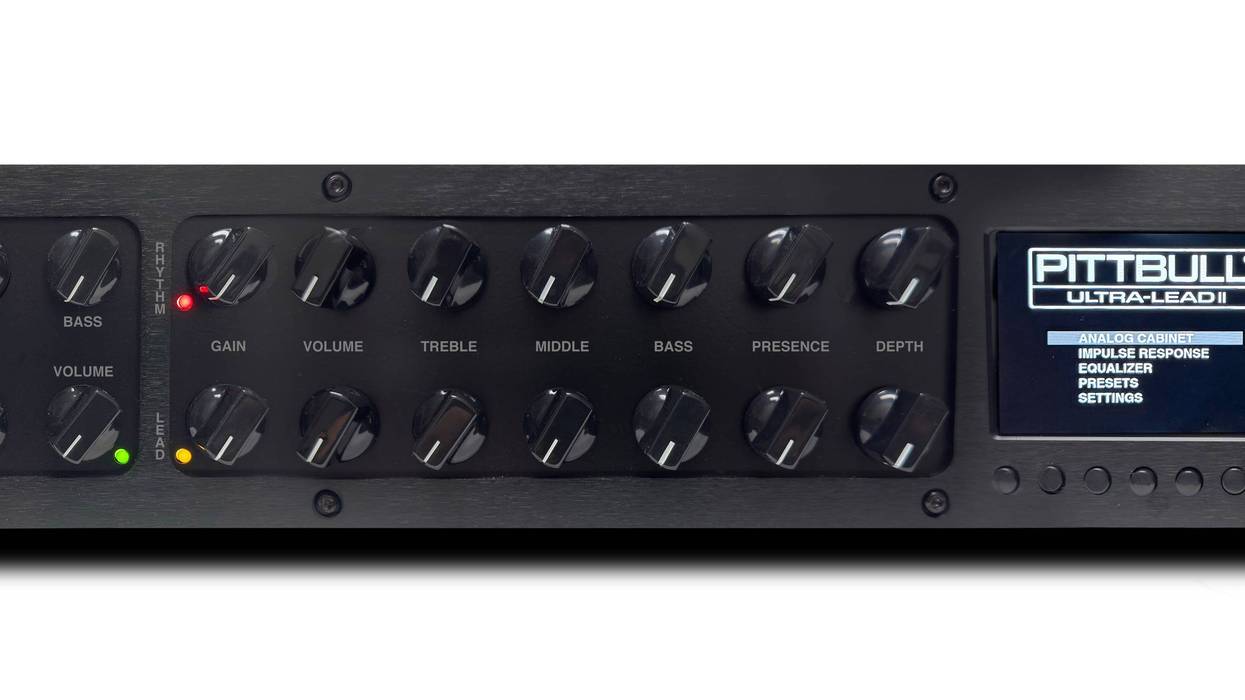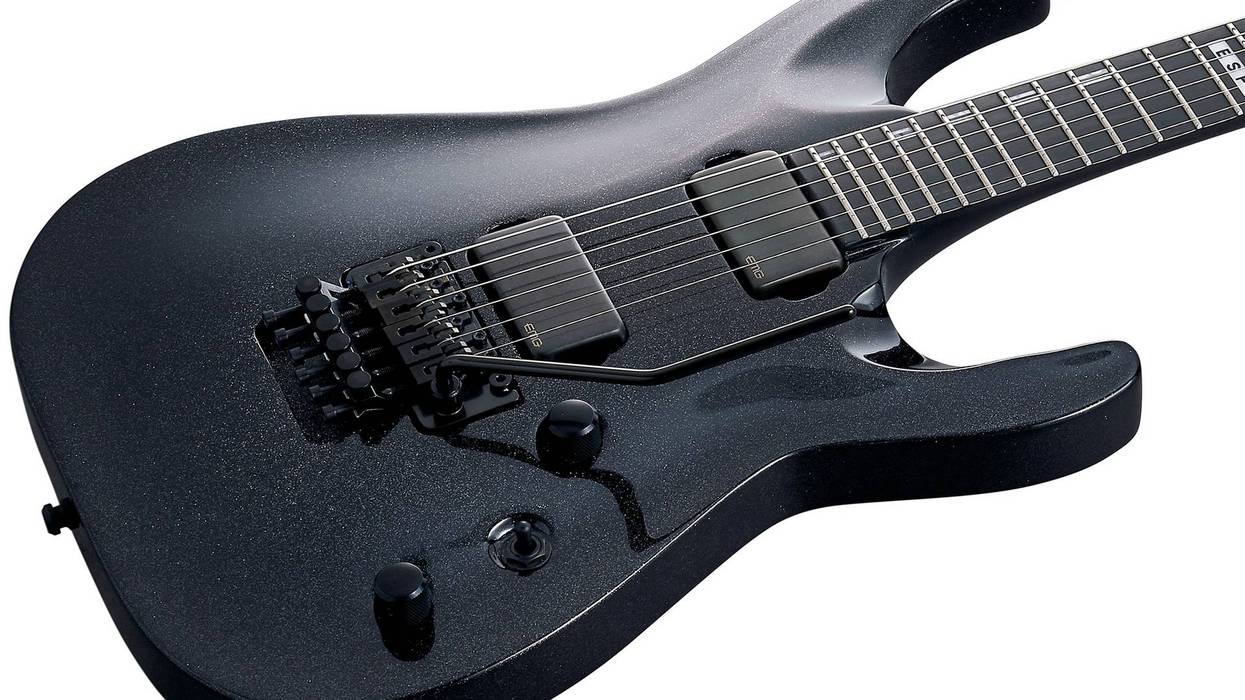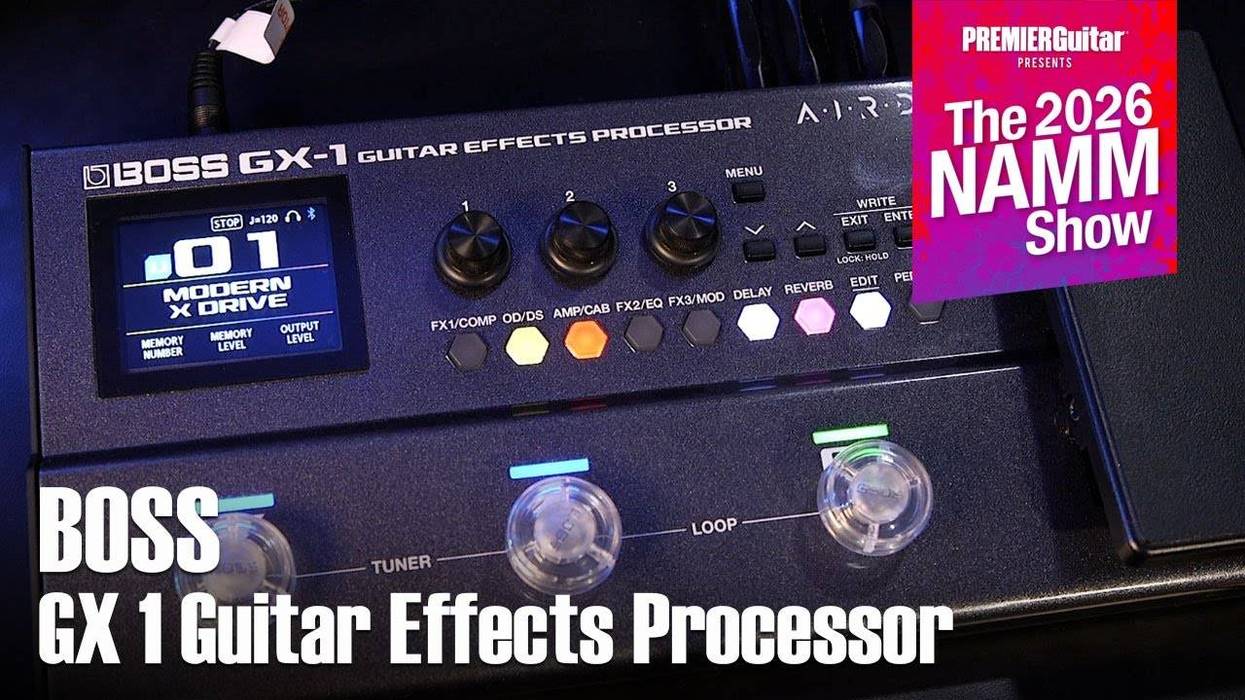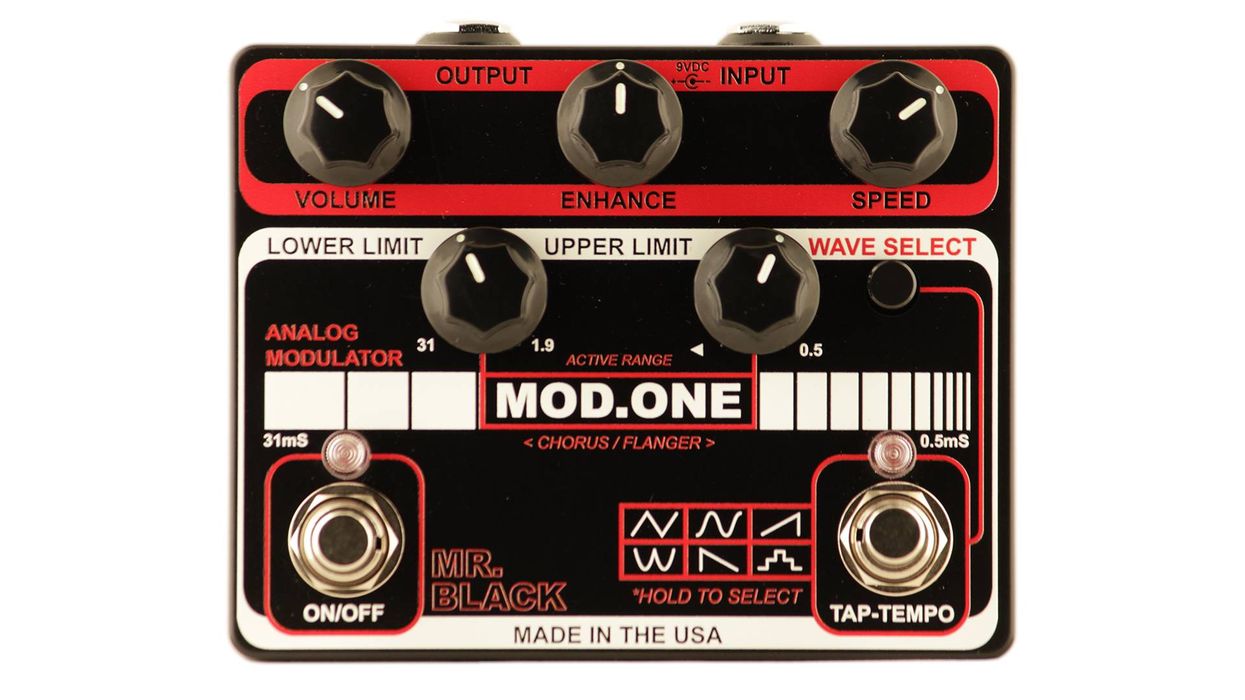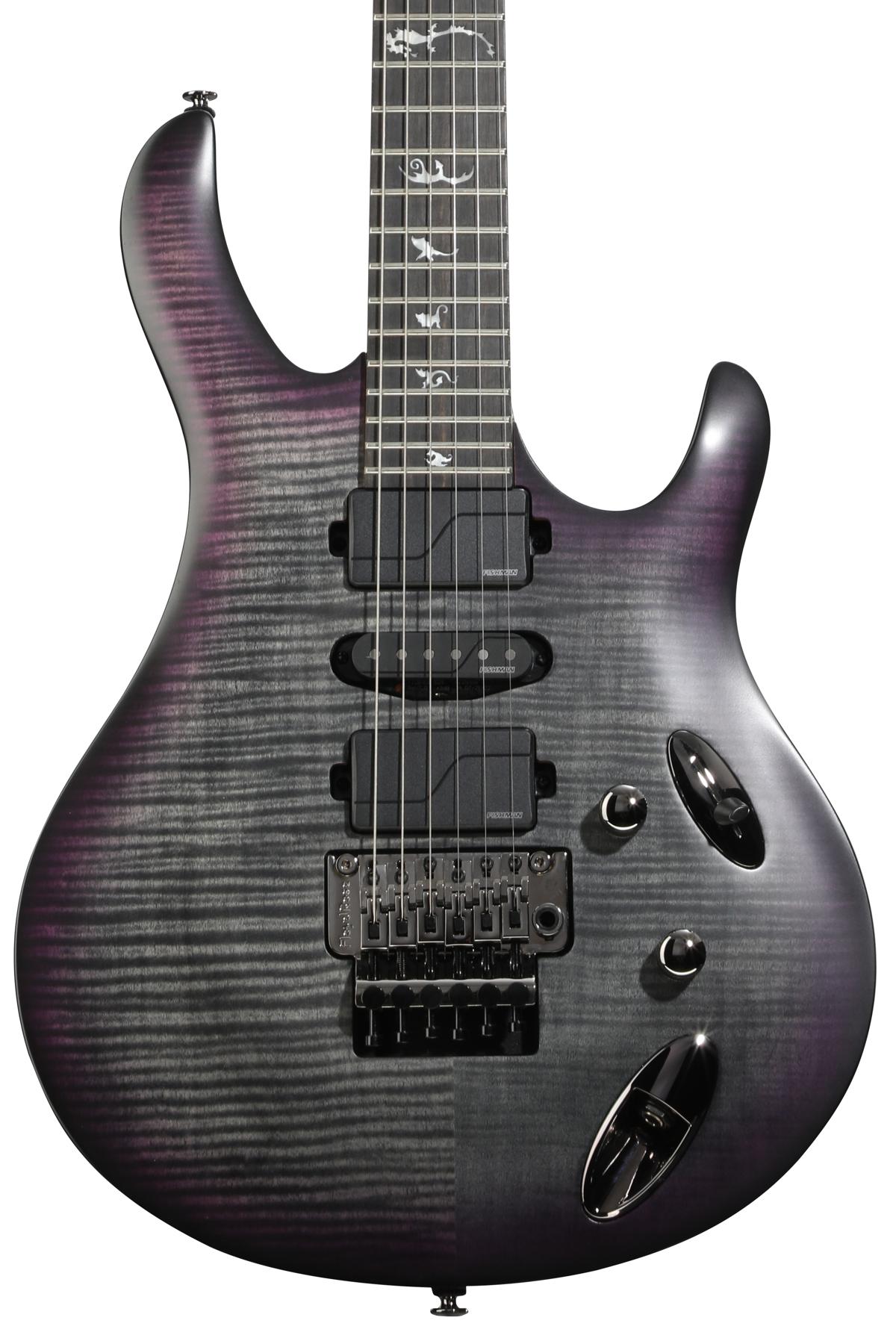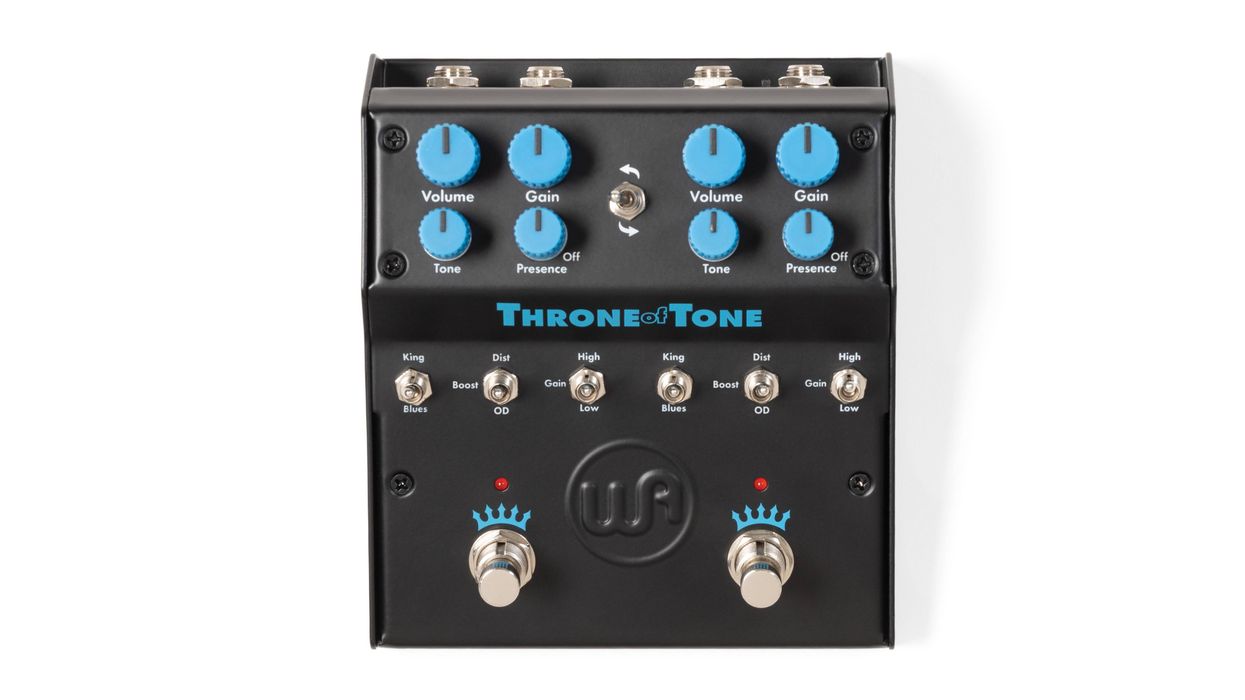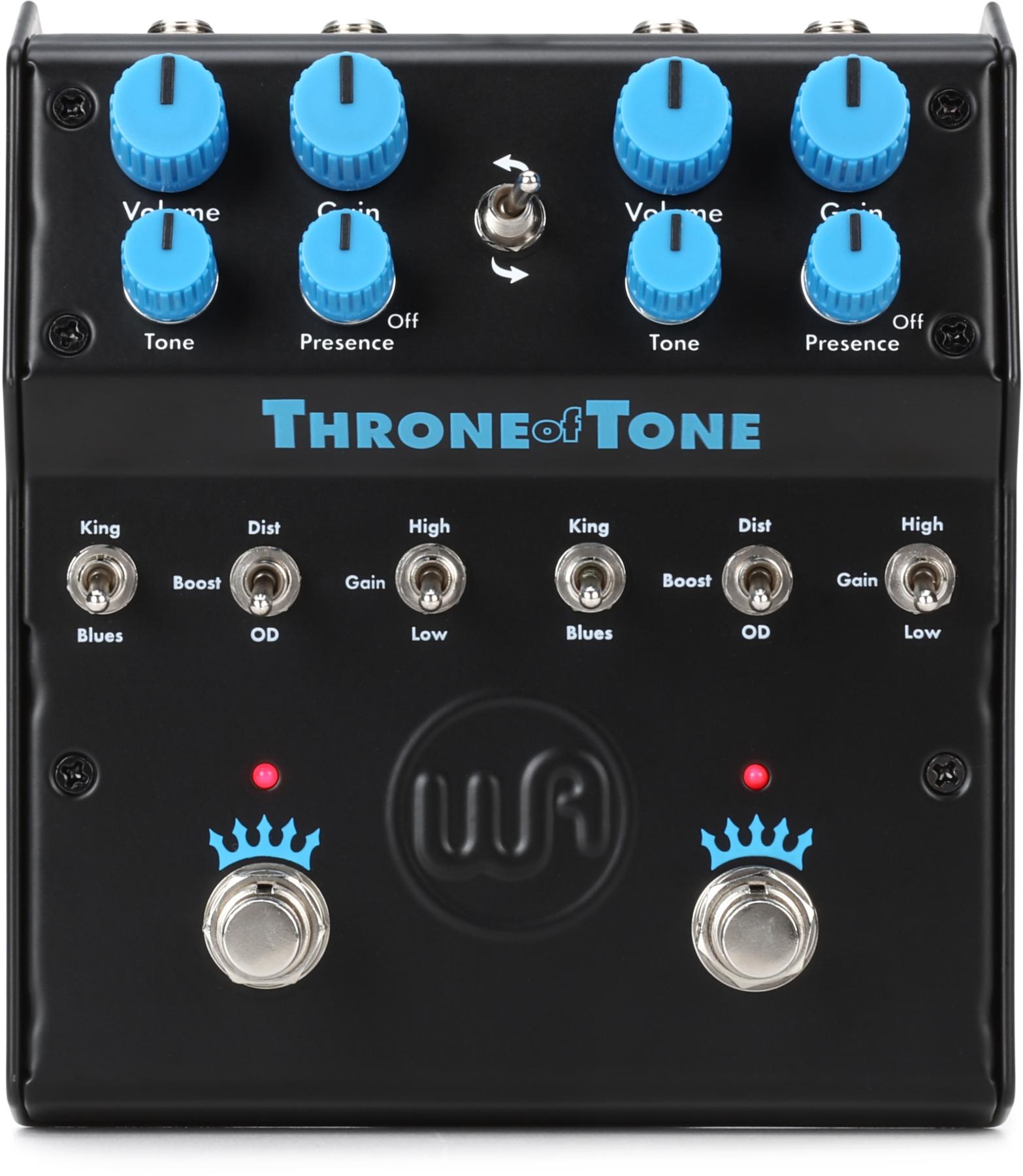Ever since Breedlove Guitars formed in the early ’90s, the company has emphasized forward-thinking design and alternative materials. Larry Breedlove, after all, was a former Taylor employee, and as such had learned a few things about modern acoustic-guitar construction. But Breedlove’s adopted home in central Oregon, and the wealth of wood from the region, seems every bit as big an influence on what the company’s guitars would become. And emphasis on sustainable materials and an outside-the-box view of tonewoods like walnut and myrtlewood led to unique and evolutionary instruments that helped put Breedlove on the map.
In the years since, Breedlove has explored more traditional designs and materials, too. But the C20/SMYe from the new Oregon series feels like revisiting the company’s earliest, more radical design impulses, and it possesses a distinct personality and voice that is bound to appeal to a wide swath of fingerstylists and singer-songwriters—particularly those with an understated and nuanced touch.
Left Down Myrtlewood Street
Even at a distance, it’s hard to mistake
the C20/SMYe for anything other than a Breedlove. The company’s signature
headstock, which tends to be a polarizing
factor for some players, is a dead giveaway.
But the concert-sized body also speaks
to Breedlove’s go-your-own-way styling
sense. It’s a little more curvaceous, pinched
at the waist, and wider at the bass bouts
than a traditional concert-sized guitar like
a Martin 00. Instead, the 15" body and
more dramatic shape make it more akin to
a Taylor Grand Concert or a fatter Gibson
L-0. The less formal styling is tempered
in small measure by touches like the herringbone-like binding. In general, though,
the guitar is a showcase for more modern
design sensibilities. Past the 12th fret, the
pearloid dot inlays on the ebony fretboard
are on the treble side of the fretboard and
between the high E and B strings. Below
the 12th fret, the dots are situated between
the 5th and 6th strings. At the 12th fret,
the offset dots suggest a sort of figurative
hand off between octaves—an easy detail to
miss, perhaps but a thoughtful touch.
The blonde-on-blonde look of the Sitka spruce top and myrtlewood back and sides may not be as typical of a match as the spruce top and maple back and sides on a Guild or Gibson jumbo, but the earth-and-stone hues of the myrtlewood lend the guitar a sort of organic visual cohesiveness.
The Middle Way
The first thing you’re likely to notice about
the Breedlove’s playability is how instantly
agreeable it feels. The action is pretty low
despite a saddle and bridge design that
creates a considerable break angle behind
the saddle—a nice combination when you
consider long-term maintenance. The lowish
action makes chording easy, but it’s also
very friendly to fingerstyle maneuvers—making hammer-ons, pull-offs, and legato
phrases relatively effortless.
If the C20/SMYe’s playability makes it seem like a natural fingerstyle machine, the prevailing tones make it feel doubly so. This is a very midrange-y guitar, and if you’re the kind of fingerstylist who works with a nuanced, delicate touch, you’ll savor the detail, dynamics, and overtones you can coax out of it with very little effort. These applications reveal the similarities between the Breedlove’s spruce-and-myrtlewood composition and sounds commonly associated with spruce and maple—bright, warm, and not too bossy. The union of warmth and articulation makes it a great guitar for the studio. It can be both compact and present in a mix as fingerstyle accompaniment to a vocal, or yield a bounty of rewards for players who use a thin pick and/or light touch for propulsive Jeff Lynne/ELO/Wilburys-style strummed rhythms. In these contexts, the Breedlove sits both succinct and airily spacious in a mix—adding bounce, atmosphere, and an almost 12-string- or Nashville-strung-like presence.
Ratings
Pros:
Beautifully responsive and articulate for nuanced fingerpicking work. Excellent high-mid presence for rhythm work. Unique voice. Great studio guitar.
Cons:
Not much low end.
Tones:
Playability:
Build/Design:
Value:
Street:
$1,499
Company
breedlovemusic.com
If there’s a flip side to the beautiful, harmonic responsiveness to light picking, it’s that the C20/SMYe can be equally unkind to a heavy hand—at least when set up with the low action the guitar seems meant to have. The compact body and myrtlewoodand-spruce recipe produces a lot less bass thump. In fact, in standard tuning, the low E doesn’t generate much at all. The way the guitar is set up, tuning down to C–G–C–F–A–C or even DADGAD did little to summon much additional low end. For players who value the exquisite midrange attributes, the lack of big, resonant bass may be a plus—especially in the studio. But if you’re used to the low-end of, say, a rosewood OM or a dreadnought, the absence of that boom can throw you for a curve.
Plugged in, the C20/SMYe’s Fishman Ultratone undersaddle transducer can help you dial in a little more bass, but you’ll likely have to augment it via your amp’s (or mixing desk’s) EQ, because while the pickup does a very good job of communicating the guitar’s ample midrange content, rolling back its tone control too much shaves off some of the gorgeous detail. Dial up the right amount of low end on your amp, though, and the Fishman gives you a little more bass without substantial sacrifice in high-mid articulation.
The Verdict
While it may not put a lot of low-end tonnage
at your fingertips, the C20/SMYe has
enough range to sound feather-delicate or
downright propulsive—and it feels positively
slinky while doing either. If you can’t
live without the low end of your D-28,
this Breedlove probably won’t do the trick.
That said, players who love the C20/SMYe’s
warm and bright myrtlewood tones but
miss the bass might well find a solution
in the Oregon Series dreadnought. But if
you’ve already got a boom box in your collection
and you’re looking for a less rough-hewn
voice for fingerstyle and strumming,
the C20/SMYe would be a great addition to
your quiver.


